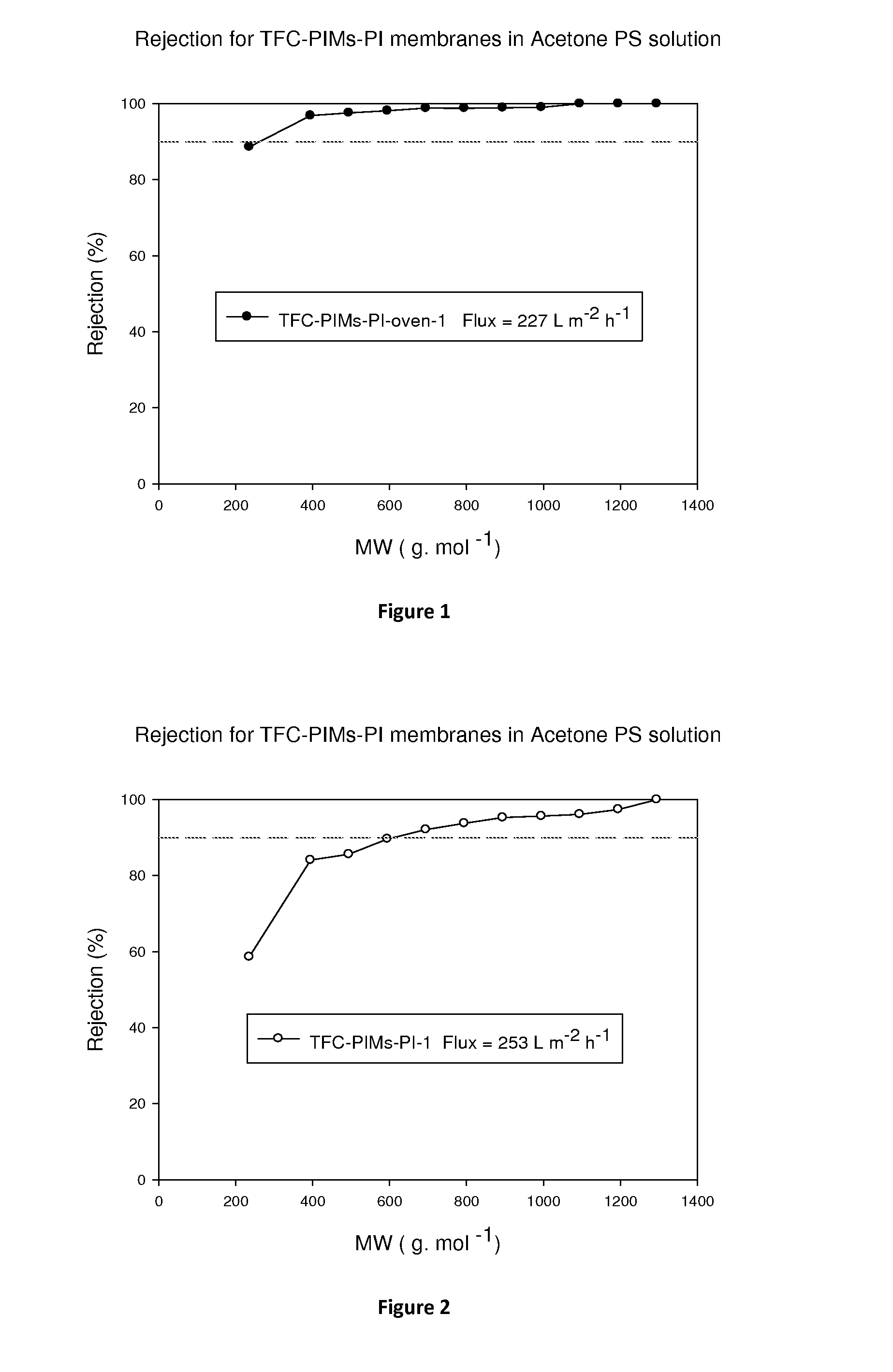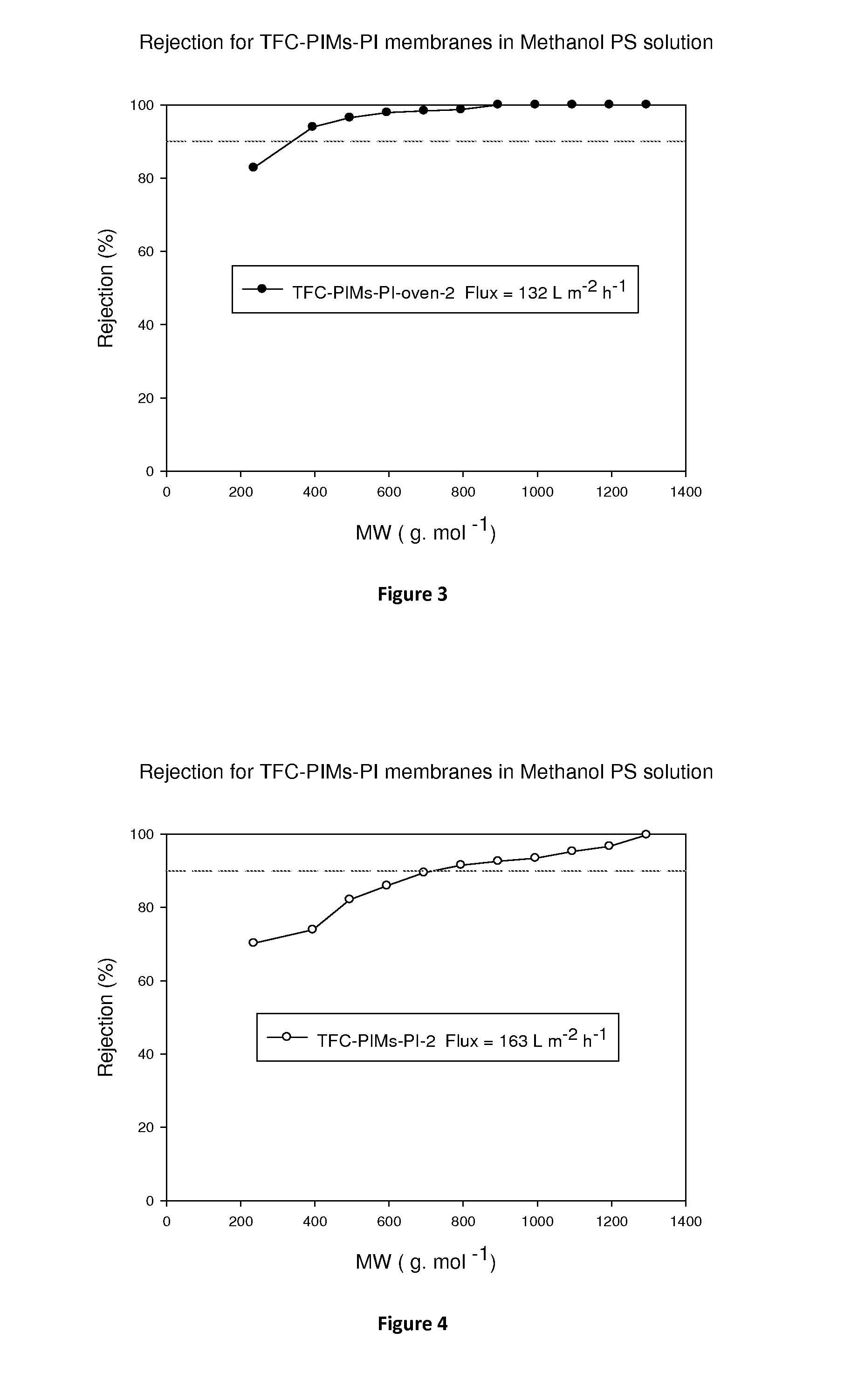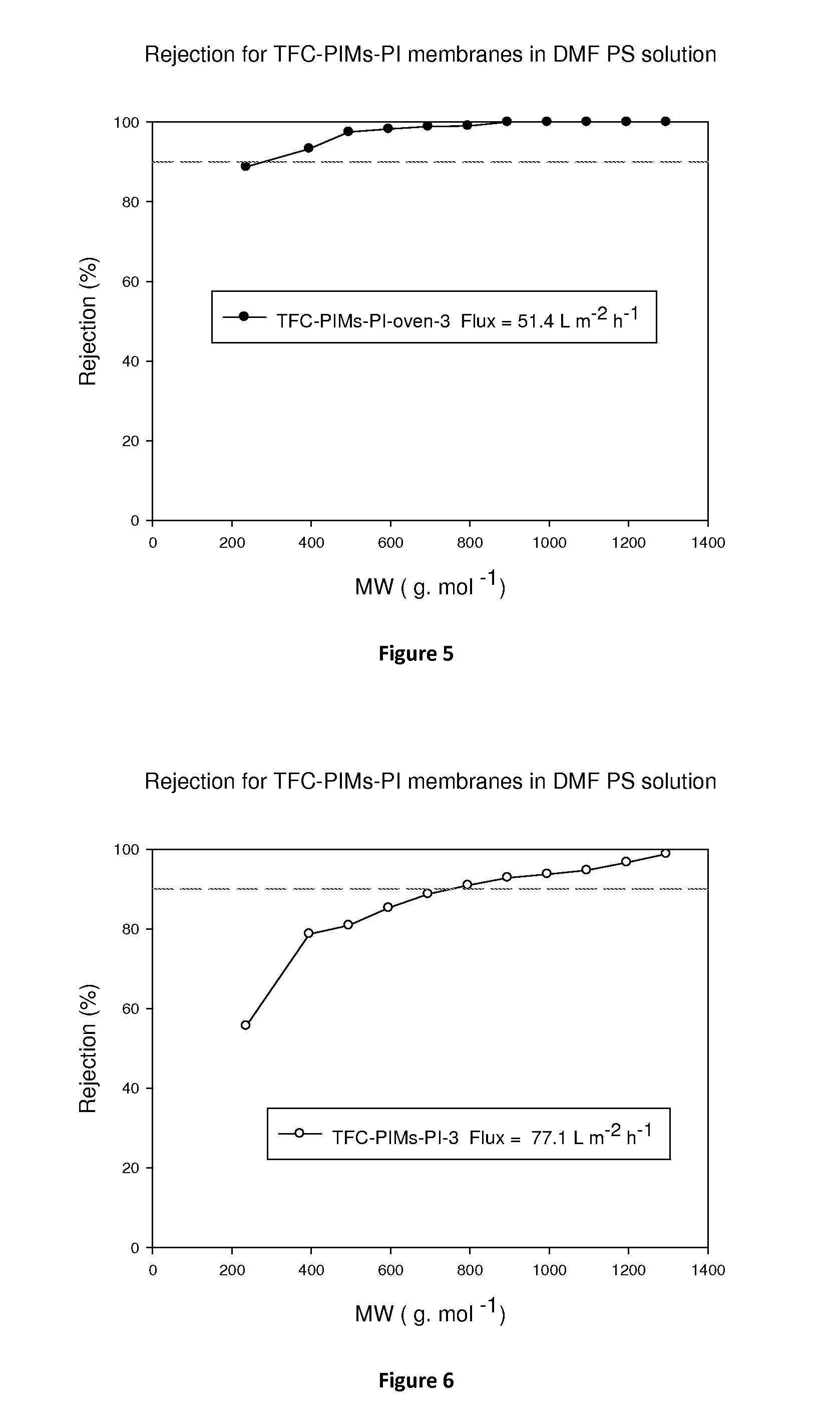Membranes for separation
a technology of membranes and membranes, applied in the field of separation membranes, can solve the problems of high permeability, high free volume, high free volume, etc., and achieve the effect of improving some properties and stable in organic solvents
- Summary
- Abstract
- Description
- Claims
- Application Information
AI Technical Summary
Benefits of technology
Problems solved by technology
Method used
Image
Examples
example 1
[0128]In the following example, membranes of the present invention are formed through interfacial polymerisation to form a polyester on a crosslinked polyimide support membrane, as follows:
Formation of Crosslinked Polyimide Support Membrane
[0129]A polymer dope solution was prepared by dissolving 24% (w / w) polyimide (P84 from HP Polymer AG) in DMSO and stirring overnight until complete dissolution. A viscous solution was formed, and allowed to stand for 10 hours to remove air bubbles. The dope solution was then cast on a polyester or polypropylene (Viledon, Germany) non-woven backing material taped to a glass plate using a casting knife (Elcometer 3700) set at a thickness of 250 μm. Immediately after casting, the membrane was immersed in a water bath where phase inversion occurred. After 15 minutes, it was changed to a new water bath and left for an hour. The wet membrane was then immersed in a solvent exchange bath (isopropanol) to remove any residual water and preparation solvents....
example 2
[0137]TFC membranes were prepared on PEEK support membranes, as follows:
Fabrication of Membrane Supports from Polyetheretherketone (PEEK):
[0138]A polymer dope solution was prepared by dissolving 12.3% (w / w) PEEK (Vicote 704 from Victrex) in 79.4% methane sulfonic acid (MSA) and 8.3% sulfuric acid (H2SO4). The solution was stirred overnight until complete dissolution. A viscous solution was formed, and allowed to stand for 10 hours to remove air bubbles. The solution was then cast on a polyester non-woven backing material taped to a glass plate using a casting knife (Elcometer 3700) set at a thickness of 250 μm. Immediately after casting, the membrane was immersed in a water bath where phase inversion occurred. After 15 minutes, it was changed to a new water bath and left for an hour. The wet membrane was then immersed in a water bath to remove any residual preparation solvents.
[0139]The final step for preparing the PEEK support membrane involved immersing the membrane overnight into...
example 3
[0144]In this particular example TFC membranes were prepared on PBI support membranes, as follows:
[0145]Fabrication of membrane supports from polybenzimidazole (PBI):
[0146]A polymer dope solution was prepared by diluting a commercial dope solution of 26 wt % PBI dissolved in DMAc (trade name: Celazole®) to 15 wt % with DMAc. The solution was stirred for 4 h until complete dissolution. A viscous solution was formed, and allowed to stand for 10 hours to remove air bubbles. The solution was then cast on a polypropylene non-woven backing material taped to a glass plate using a casting knife (Elcometer 3700) set at a thickness of 250 μm. Immediately after casting, the membrane was immersed in a water bath where phase inversion occurred. After 15 minutes, it was changed to a new water bath and left for an hour. The wet membrane was then immersed in a water bath to remove any residual preparation solvents.
[0147]The final step for preparing the PBI support membrane involved immersing the me...
PUM
| Property | Measurement | Unit |
|---|---|---|
| Temperature | aaaaa | aaaaa |
| Temperature | aaaaa | aaaaa |
| Time | aaaaa | aaaaa |
Abstract
Description
Claims
Application Information
 Login to View More
Login to View More - R&D
- Intellectual Property
- Life Sciences
- Materials
- Tech Scout
- Unparalleled Data Quality
- Higher Quality Content
- 60% Fewer Hallucinations
Browse by: Latest US Patents, China's latest patents, Technical Efficacy Thesaurus, Application Domain, Technology Topic, Popular Technical Reports.
© 2025 PatSnap. All rights reserved.Legal|Privacy policy|Modern Slavery Act Transparency Statement|Sitemap|About US| Contact US: help@patsnap.com



